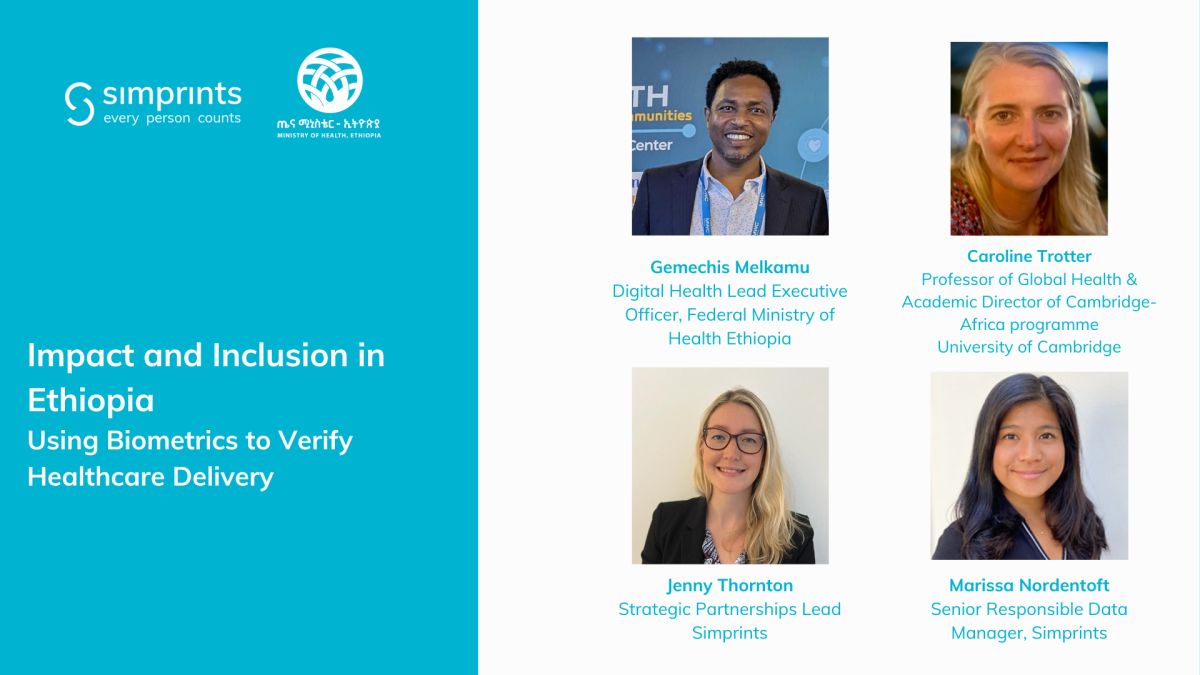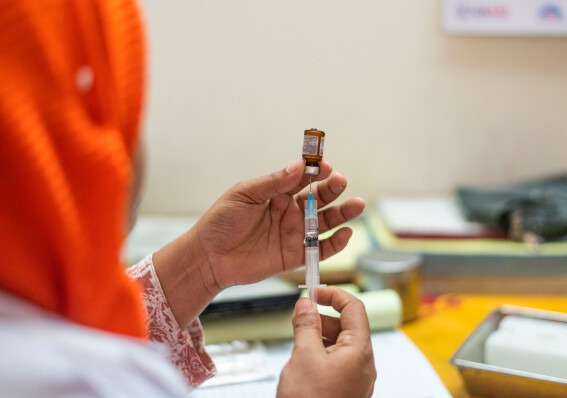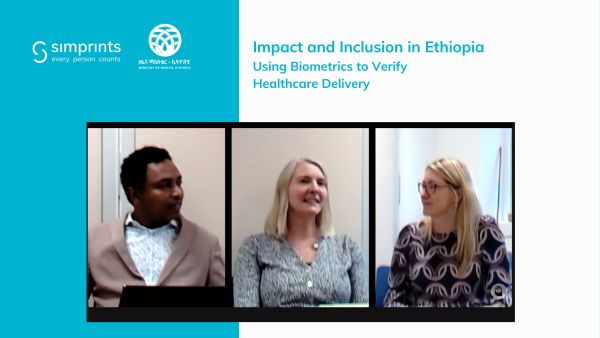Simprints- A new kind of tech for good

An estimated 850 million people globally lack formal identification, which makes it incredibly hard to verify that critical services are reaching the people they’re meant for.
With the global population anticipated to increase from 7.6 billion people to 8.6 billion by 2030, there’s an ever-pressing need to provide universal health coverage. Simprints brings a technology solution to the table that will help ensure health services such as vaccines, treatment for neglected tropical diseases and maternal health care reach those at the last mile.
According to the World Health Organisation (WHO) and UNICEF, when it comes to the first dose of the measles vaccine coverage in Uganda, the gap between administrative data and WHO surveys is 20%. The gap means that health services intended for some - often those lacking formal ID - are falling through the cracks.
 That’s why Simprints developed a new kind of tech for good: biometric ID with privacy at its core. This gives people a safe digital identity and ensures that every vaccine, every dollar, and every public good reaches those who need them most.
That’s why Simprints developed a new kind of tech for good: biometric ID with privacy at its core. This gives people a safe digital identity and ensures that every vaccine, every dollar, and every public good reaches those who need them most.
Who we are
Simprints was born at the University of Cambridge, being established in 2015 by postgraduate students who observed the problematic link between unreliable paper-based patient health record keeping and verification of health service delivery in Bangladesh. Now operating in 17 developing countries across the globe, Simprints is a non-profit technology company on a mission to transform the way the world fights poverty.
We do this with our biometric solutions which allow for the identification of beneficiaries for:
* better case management
* stronger monitoring of programme performance, and
* accurate verification of coverage.
Our tools and data allow implementing partners to demonstrate their reach and enable donors to invest in programmes that work with confidence.
Working with Cambridge-Africa
On 16 November 2023, an online audience from across the health, research, international development, funder and biometric technology sectors joined an esteemed panel during a live webinar exploring the theme of ‘Impact and Inclusion in Ethiopia: using Biometrics to Verify Healthcare Delivery’.

Cambridge-Africa generously hosted the webinar and a series of meetings that week, which allowed officials from the Federal Ministry of Health Ethiopia (FMOH) to deepen their knowledge of biometric technology and to chart out areas of further development and collaboration in the future, which will enhance health delivery, and ultimately health outcomes, for Ethiopia’s population of 120 million people.
We were proud to co-host the webinar with the University of Cambridge and commend Cambridge-Africa for facilitating partnership and collaboration in digital health.
Webinar panellists
- Gemechis Melkamu, Digital Health Lead Executive Officer, Federal Ministry of Health Ethiopia
- Professor Caroline Trotter, Academic Director of Cambridge-Africa, Cambridge University
- Marissa Nordentoft, Senior Responsible Data Manager, Simprints
- Jenny Thornton, Strategic Partnerships Lead, Simprints
The panel explored how biometric solutions can help close the vaccine coverage gap and what the current digital health priorities are in Ethiopia. Trust, community acceptance and the empowerment of community health workers all emerged as leading elements across the webinar discussion and audience Q&A.
Gemechis Melkamu commented: “The Federal Ministry of Health Ethiopia is proud to be working in close partnership with Simprints. Simprints' biometric solutions help us to ensure inclusive and impactful health services – driving us towards our commitment to serving all citizens. The webinar was incredibly insightful and a valuable learning experience."
Learn more
- Watch the webinar on replay: https://bit.ly/3vNCGON
- Learn more about Simprints: https://www.simprints.com
- Follow Simprints on LinkedIn:https://bit.ly/3Hs3cjf
- Follow Simprints on X: https://bit.ly/3HwnRCx

